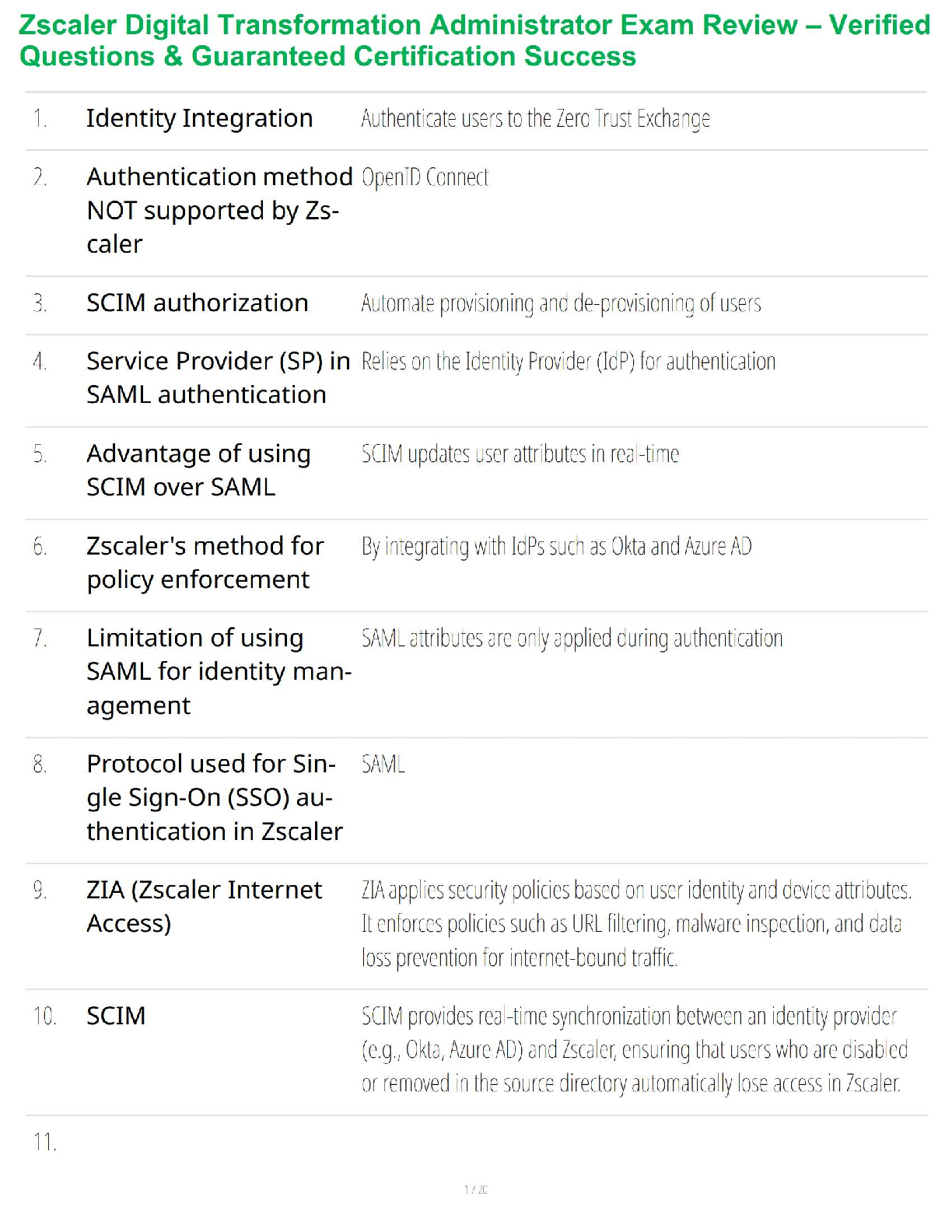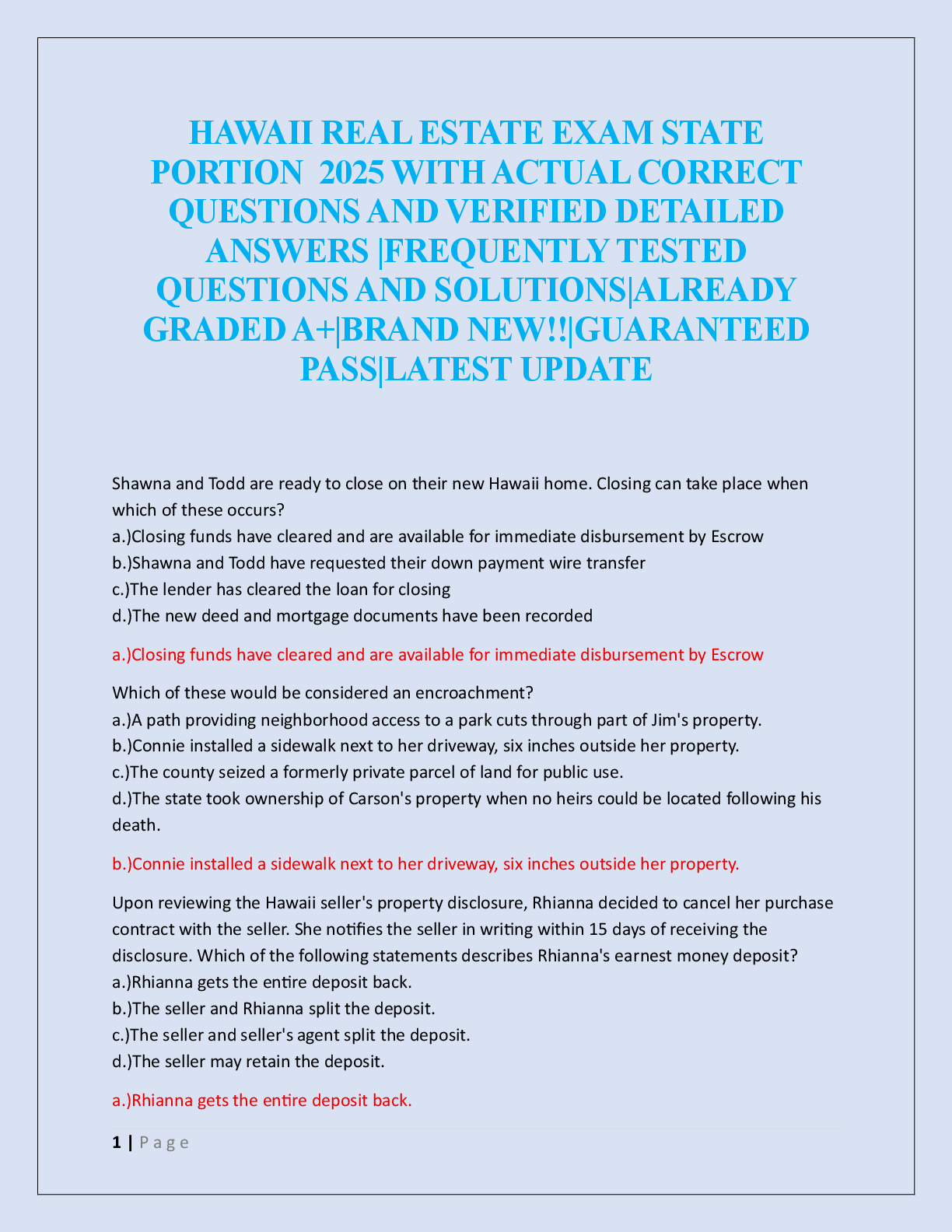
Zscaler Digital Transformation Administrator Exam Review – Verified Questions & Guaranteed Certification Success
$ 15.7

HAWAII REAL ESTATE EXAM STATE PORTION 2025
CERTIFIED FITNESS TRAINER > EXAM > CanFitPro PTS Certification (A+ GRADED) (All)
Last updated: 1 year ago
Preview 1 out of 20 pages

Loading document previews ...
Buy this document to get the full access instantly
Instant Download Access after purchase
Buy NowInstant download
We Accept:

Can't find what you want? Try our AI powered Search
Connected school, study & course
About the document
Uploaded On
Oct 08, 2024
Number of pages
20
Written in
All
This document has been written for:
Uploaded
Oct 08, 2024
Downloads
0
Views
44
Scholarfriends.com Online Platform by Browsegrades Inc. 651N South Broad St, Middletown DE. United States.
We're available through e-mail, Twitter, and live chat.
FAQ
Questions? Leave a message!
Copyright © Scholarfriends · High quality services·